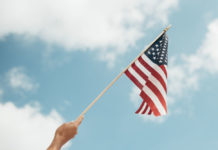By Alexis Jarossy
Once upon a time when Cocktails adhered to time-honored combinations that bartenders could prepare blindfolded—cosmos, gin and tonics, vodka cranberry’s—the term “cocktail consultant” would have fallen on deaf ears. But under the surface of that era existed a burgeoning sub-culture of devoted professionals who nurtured and perfected the art of making a drink.
While the days of basic mixed drinks are by no means gone, one might argue that the boundaries of the cocktail game have expanded to a point that it has practically superseded the average person’s traditional drinking experience.
In order to consistently satisfy the customer’s need for well-crafted and balanced cocktails for which they will gladly pay a little extra, your bar staff needs to be able to execute a unique yet structured drink menu, and this is not always feasible. Enter the cocktail consultant.
“Smaller venues may have a consultant to do all of the work for them, supply the recipes, and walk away with a fee,” says Brian Van Flandern, owner of Creative Cocktail Consultants Corp., in New York, New York. “What the better consultants do is include staff training, teaching them in great detail about every little thing behind the bar. We have them recreate the cocktails using the principals of flavor profiling and balance. We leave them with the tools and the fundamental precepts for creating their own original cocktails. That way, after we’ve left, they can then use those principals to use seasonal ingredients and create original recipes.”
Depending on the concept and goals you have set for your venue, a cocktail consultant prepares your bar staff to better serve traditional cocktails and lays the foundation for it to continually create a unique and theme-oriented beverage program.
“The industry is backwards, and has been for 20 years,” says Tobin Ellis, founder of BarMagic, LLC, in Las Vegas, Nevada. “No one in their right mind would open a restaurant and have a chef scribble down some recipes and make up a menu. But that’s exactly what the bar business does. They get bar equipment that is out of date, have a bartender jot down some recipes or grab them off a Web site, let people order the same old vodka tonics and draft beers, and hope that they make money.”
BarMagic is what Ellis describes as an A-Z beverage and nightlife consultation company whose goal is to provide beverage-centric businesses with the tools necessary for keeping operators in business. Based on the high rate of failure within the first year of business in the bar market, Ellis recommends bringing in an industry veteran to help you start off in the right direction. BarMagic works with owners to plan and set up bars and equipment properly, train the staff, develop the cocktail menu, and choose inventory wisely and in a way that fits within your concept and budget.
“What it comes down to is that throwing darts in the dark is not a good way to generate profits,” says Ellis. “We provide fully thought-out programs with all the costs and profitability built-in so you know what you’re getting into, which almost no operators do on their own. We have documentation that shows clients that we’ve delivered a return on investment in as little as nine days, but we typically deliver it in three to four months.”
Cocktail consultant fees vary based on the extent of service provided. When hiring one, establish ahead of time what it is you are looking to get out of the investment. Do you simply want a list of original cocktail recipes? Or are you looking for a full construction of your staff and bar?
For those on a tight budget, hiring a consultant may seem like a frivolous, unnecessary cost. However, the benefits of incorporating consultant fees into your business plan range from making the most money out of every pour, to employing a bar staff that is consistent and creative, to keeping patrons loyal based on the quality and value of your cocktail menu, to building a foundation for long-term success.
“If your staff is executing properly and making delicious cocktails, not only do your liquor costs go down, but your check averages go up,” says Van Flandern. “The consumer is able to order two or three or more cocktails and is happier with a better quality product. And the bartenders are happy because they’re making more money as the check averages go up.”
Erin-Elizabeth Williams, a partner at Hush Cocktails, in New York, New York, believes that having a cocktail menu available to customers will encourage them to order drinks they wouldn’t have otherwise. “Having a menu in front of people is going to get them to order the unique drinks that will boost your liquor sales,” she says. “If you’re just serving gin and tonics and martinis or glasses of wine, it’s not fun or interesting.”
Williams, who is also a Brand Ambassador for Cointreau®, says that using a consultant supported by a particular brand will give you a leg up on the competition, while allowing your staff to make the most out of that brand and generating optimal revenue from it.
“If you employ a consultant who is a brand ambassador, you’ll get a menu that will profile that brand in a way that no other venue’s menu will,” she says.
However, just having a list of cocktail recipes for your bar staff to mimic is not always enough.
“What spurs cocktail sales more than anything is not just the dynamic menu, but that the cocktails have a perfect balance to them and that they are always that way,” says Ryan Magarian, founder of Liquid Relations™, in Seattle, Washington. “If you serve a perfectly well-balanced cocktail people will always order two or three. It has more to do with the overall execution than it necessarily does with the signature cocktail menu. Our focus is getting a foundation of incredible execution and passion from which to start.”
Liquid Relations™ is a beverage service and consultancy is rooted in the philosophy that creating a culture of perfectly balanced and well-executed cocktails is what changes the experience had by both bartenders and patrons. Magarian believes, however, that the value in using a cocktail consultant goes beyond the cash register.
“I have a 50-50 rule, where 50% of the cocktails are there to be financially rewarding to the client – drinks you know will sell and will render the investment viable,” he says. “But the other 50% should represent the ingenuity and character of the hospitality concept. A lot of these drinks are experimental and you may only sell 30 per month, but having the insight and forethought to even try something like that is key. These innovative, off-the-wall drinks in the ‘character’ half of the menu are the ones that get media attention, so the value comes in the press that these cocktails drive to the venue.”
Attesting to the effectiveness of Magarian’s work is Beau MacMillan, Executive Chef at Elements Restaurant at Sanctuary Resort on Camelback Mountain, Paradise Valley, Arizona, who has seen measurable results in the success of the resort’s two bars since hiring Liquid Relations™ a year ago.
“He spent a hard week with the whole staff, putting them through a boot camp where they did nothing but shake drinks, talk philosophy, and study,” says MacMillan. “Before, people came in and ordered their own drinks, and 80% of our specialty cocktails were made with vodka. Now we have mixologists that are placing in the top five nationally with brands like Bombay Sapphire Gin.
“I give Magarian credit for the foundation, but the guys here have gone to a higher level,” he continues. “We’ve seen great results from that whole investment. I’ve been here for 11 years and this is the best bar we’ve ever had.”
Hiring a cocktail consultant to help you structure a drinks menu into a creative and comprehensive program driven by an educated and motivated staff will give you the resources needed for long-term success. It is important to remember that these are professionals versed in both the art of the cocktail, and the art of making money from the bar. No matter what your budget, a cocktail consultant will help elevate your cocktail menu and improve your staff in order to provide your customers with a valuable cultural experience.








